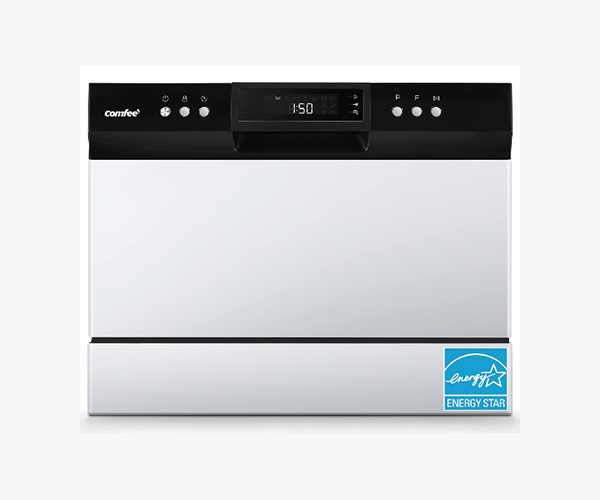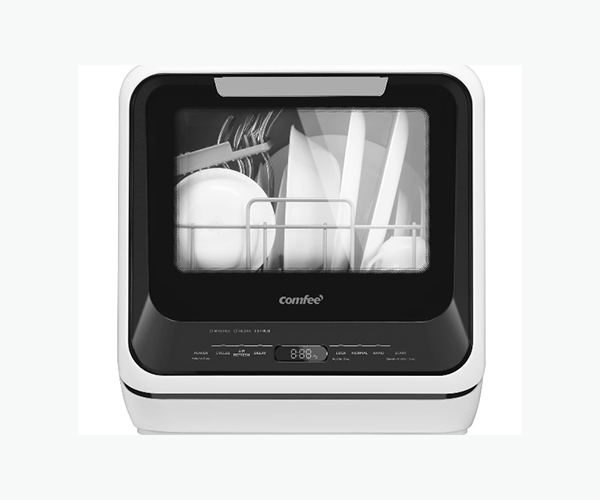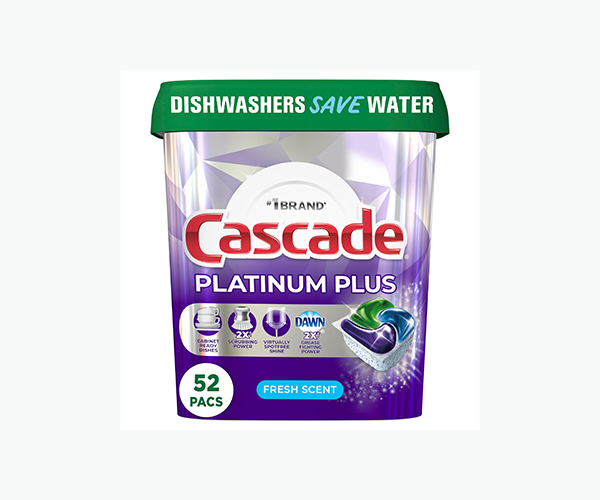Part 1: Introduction
It can be difficult to grasp the subtleties of operating a dishwasher, particularly when it comes to fragile objects like glass glasses. This thorough guide seeks to demystify the procedure by providing information on safe cleaning techniques and dishwasher safety measures for glass cups. Whether you’re a dishwasher aficionado, a homeowner, or someone who loves to keep their glassware spotless, this post is designed to help you understand the dos and don’ts when it comes to dishwashing glass cups.
Overview of Dishwashing Glass Cups
- Dishwasher Compatibility: Not all glass cups are created equal. Their compatibility with dishwashers depends on several factors including material, quality, and design.
- Material: The type of glass, whether it’s borosilicate, tempered, or regular glass, plays a crucial role in determining its dishwasher safety.
- Quality: Higher-quality glasses tend to be more resistant to temperature changes and mechanical stress, making them more suitable for dishwasher use.
- Design: Certain designs, like hand-blown or intricately patterned glasses, may be more susceptible to damage in a dishwasher.
- Common Concerns:
- Thermal Shock: Rapid temperature changes in the dishwasher can cause glass to crack.
- Mechanical Stress: The intense water spray and collisions with other dishes can lead to chips or cracks.
- Chemical Erosion: Detergents and high mineral content in water can etch or dull the surface of glass cups.
- Benefits of Dishwasher Use:
- Convenience: It’s easier and less time-consuming than hand washing.
- Hygiene: Dishwashers can achieve higher temperatures than hand washing, ensuring a more thorough clean.
- Efficiency: Washing multiple items at once saves water compared to hand washing.
Importance of Understanding Dishwasher Safety for Glassware
- Preserving Quality: Knowing how to properly wash glass cups in a dishwasher helps in maintaining their clarity and integrity over time.
- Avoiding Damage: By understanding the limitations and proper care required, you can avoid common pitfalls like cloudiness, etching, or cracks.
- Enhancing Longevity: Proper dishwashing techniques extend the life of your glassware, ensuring that it remains a part of your kitchen and dining experience for years to come.
We’ll go into more detail on the many kinds of glass cups, how to clean them in a dishwasher, how to deal with frequent problems, and when hand washing is better in the parts that follow. Keep reading to gain all the information you require to maintain the safety and shine of your glass dishwasher cups.

Part 2: Types of Glass Cups and Dishwasher Safety
Not every glassware type can be cleaned in a dishwasher when it comes to cleaning glass cups. Whether a glass can withstand the demands of a dishwasher cycle safely depends largely on its type and quality. Maintaining the durability and aesthetic appeal of your glass cups requires an understanding of the variations among different glass materials and their characteristics.
Different Types of Glass Materials
- Borosilicate Glass:
- Characteristics: Known for its exceptional durability and resistance to thermal shock, borosilicate glass is a popular choice for kitchenware and laboratory equipment.
- Dishwasher Safety: Its robust nature makes it one of the safest types of glass to clean in a dishwasher. The low thermal expansion coefficient of borosilicate glass ensures it can withstand temperature fluctuations without cracking.
- Tempered Glass:
- Characteristics: Tempered glass is treated through controlled thermal processes to increase its strength compared to normal glass. This treatment makes it more resistant to breaking, and when it does break, it shatters into small granules rather than sharp shards.
- Dishwasher Safety: The enhanced strength of tempered glass generally allows it to be safely washed in a dishwasher. However, it’s essential to avoid placing it near items that could collide and cause chipping during the wash cycle.
- Hand-Blown/Painted Glass:
- Characteristics: These are often unique, artisanal pieces where glass is manually blown and may include delicate painted designs. They are prized for their aesthetic appeal rather than functional durability.
- Dishwasher Safety: Due to their delicate nature, hand-blown and painted glass cups are not recommended for dishwasher cleaning. The intense water pressure and high temperatures can damage the intricate designs and compromise the glass integrity.
Factors Affecting Dishwasher Safety of Glass Cups
- Quality and Durability:
- High-quality glassware, like borosilicate or tempered glass, is more likely to endure the stress of a dishwasher. These materials are specifically designed to handle temperature changes and physical impacts better.
- Lower quality glass, often found in inexpensive drinkware, may not fare as well. Such glasses can crack, chip, or become cloudy after repeated dishwasher use.
- Susceptibility to Thermal Shock:
- Thermal shock occurs when a material undergoes rapid temperature changes, leading to stress and potential breakage. Some glass types are more susceptible to this than others.
- Glass cups made of materials that resist thermal shock, such as borosilicate, are more suited for the dishwasher’s varying temperature cycles.
To sum up, a lot relies on the kind of glass and its properties when deciding whether to wash glass glasses in a dishwasher. Hand washing is the best way to maintain the beauty and integrity of delicate and handcrafted glassware, although dishwasher cycles are often not necessary for durable and high-quality glasses like borosilicate and tempered glass. When choosing the appropriate cleaning technique, always take the material of your glassware into account to ensure both the objects’ safety and the cleaning’s efficacy.
Part 3: Best Practices for Washing Glass Cups in a Dishwasher
If done correctly, washing glass glasses in a dishwasher can be a simple chore. Knowing the best procedures to preserve the longevity and safety of your glassware is essential. Here, we’ll go into the specifics of detergent selection, proper dishwashing settings, and loading practices.
Loading Techniques for Glass Cups
- Placement on the Top Rack:
- It is crucial to place glass cups on the top rack of the dishwasher. This area is designed to handle delicate items and exposes them to gentler washing and lower heat.
- Ensure that the glasses are securely positioned to prevent them from clinking against other items during the wash cycle, which could lead to chips or cracks.
- Spacing between glasses is also important. Crowding them too close can result in inadequate cleaning and a higher risk of damage.
- Angling Cups to Prevent Water Collection:
- To avoid water spots, angle your glass cups slightly. This allows water to run off the surfaces, ensuring a more effective drying process.
- Pay attention to the shape of your glasses. Unique designs may require specific positioning to optimize cleaning and drying.
Choosing the Right Dishwasher Settings
- Temperature Considerations:
- Select a wash cycle with a moderate temperature setting. High temperatures can cause stress to the glass, increasing the risk of breakage.
- For delicate glassware, consider using a “gentle” or “glass” cycle, if available, which uses lower temperatures and reduced water pressure.
- Wash Cycle Types:
- The type of wash cycle you choose can significantly affect the outcome. For everyday glass cups, a standard cycle is usually sufficient.
- For more delicate items, such as thin or hand-blown glass, opt for a cycle that is designed for fragile items, if your dishwasher offers this feature.
Selecting Appropriate Detergents
- Gentle vs. Abrasive Detergents:
- Choosing the right detergent is as important as the washing process itself. Use a gentle detergent that is specifically formulated for glassware.
- Avoid harsh or abrasive detergents, as they can etch the surface of the glass over time, leading to a dull appearance.
- Glass-Protecting Formulas:
- Some detergents come with formulas that offer additional protection for glassware. These can help prevent cloudiness and etching.
- It’s essential to read the detergent’s instructions and use the recommended amount for optimal cleaning without leaving residues.
In summary, the focus should be on gentle handling while cleaning glass cups in a dishwasher. Every action you do, from loading the glasses to choosing the detergent, should be done with the intention of protecting your glassware. You can make sure that your glass cups come out of the dishwasher spotless, gleaming, and undamaged by following these best practices. Recall that the degree to which you may modify your dishwasher usage to account for the fragile nature of your glassware will determine how long it lasts.

Part 4: Common Issues and Solutions
Glass cup cleaning in the dishwasher can occasionally result in common problems like etching or filmy residues. Maintaining the immaculate condition of your glassware requires an understanding of these issues and the application of practical remedies. We’ll look at a few of these typical problems in this section and offer fixes so that your glass cups stay spotless after every wash cycle.
Dealing with Hard Water and Filmy Residue
- Understanding Hard Water:
- Hard water contains high levels of minerals like calcium and magnesium, which can leave deposits on glassware.
- These deposits often appear as a white, cloudy film that can be difficult to remove.
- Solutions:
- Use a Rinse Aid: Adding a rinse aid to your dishwasher helps prevent water spots and mineral deposits from forming on glasses.
- Regular Maintenance: Regularly clean your dishwasher, especially the spray arms and filters, to prevent mineral buildup.
- Water Softeners: Consider installing a water softener in your home if you live in an area with particularly hard water.
Preventing Damage and Etching
- Understanding Etching:
- Etching is a form of glass corrosion that results in tiny scratches and dullness, often irreversible.
- It’s caused by a combination of factors including water hardness, detergent type, and wash temperature.
- Solutions:
- Choose the Right Detergent: Opt for detergents specifically formulated for delicate glassware. Avoid harsh chemicals that can damage the glass surface.
- Adjust Wash Settings: Use lower temperatures and gentle wash cycles to minimize the risk of etching.
- Load Glassware Correctly: Ensure glass cups are securely placed in the top rack and not overcrowded to avoid friction and collision during the wash cycle.
In conclusion, even though glass cup washing with a dishwasher is quick and easy, there are some possible problems to be mindful of, such as etching and hard water residue. You can make sure your glassware stays in great shape by putting the above-mentioned ideas into practice, like using rinse aids, choosing the appropriate detergents, and modifying the dishwasher settings. Preventing these typical issues can also be greatly aided by knowing the water quality in your community and performing routine maintenance on your dishwasher. After every wash, you can enjoy clear, dazzling glass cups if you follow these guidelines.
Part 5: When Not to Use a Dishwasher for Glass Cups
Glass cup cleaning in the dishwasher is frequently practical and efficient. However, because of their delicate nature or distinctive features, several varieties of glassware should not be washed in the dishwasher. Knowing when to give your precious glass cups a hand wash will help maintain their integrity and beauty.
Risks with Delicate and Special Glassware
- Crystal and Thin Glasses
- Crystal glassware, admired for its beauty and clarity, is particularly vulnerable in a dishwasher. The high temperatures and vigorous wash cycles can lead to chipping, cracking, or clouding of the glass.
- Thin glasses, which are often more fragile, can easily be damaged by the force of water jets or by knocking against other items during the wash cycle.
- Temperature Regime: Glass is sensitive to temperature changes. Dishwashers typically heat water to 60-65 degrees Celsius, which can be too intense for delicate glass items.
- Antique and Hand-Painted Glassware
- Antique glassware, often a treasured family heirloom, can be irreplaceable. The rough environment inside a dishwasher can cause these delicate items to chip or lose their decorative details.
- Hand-painted glass, with its unique and intricate designs, is also at risk. The dishwasher’s water jets and detergents can strip away the paint or cause it to fade.
Hand-Washing vs. Dishwashing: Making the Right Choice
- Advantages of Hand-Washing
- Controlled Environment: Hand-washing allows for a more gentle and controlled cleaning environment. You can regulate the water temperature and pressure, reducing the risk of damage to delicate glassware.
- Attention to Detail: Hand-washing gives you the opportunity to carefully clean each glass, ensuring that no spots or smudges are missed. This is particularly important for glassware with intricate designs or hard-to-reach areas.
- When to Opt for Dishwashing
- Everyday Glassware: Sturdy, everyday glasses made from materials like borosilicate or tempered glass can typically withstand the dishwasher’s environment. These glasses are more resistant to thermal shock and less likely to suffer damage.
- Efficiency: For large gatherings or busy households, using a dishwasher can save time and effort. It’s a practical choice for washing a high volume of glasses, as long as they are dishwasher-safe.
In conclusion, dishwashers are not always the ideal option for all types of glassware, even if they are efficient and convenient for washing glass glasses. To maintain their quality and beauty, delicate objects such as crystal, narrow glasses, antique, and hand-painted glassware should be meticulously hand-washed. Your exquisite glass cups can be kept beautiful and long-lasting in your home for many years by knowing when to hand-wash them instead of using a dishwashing machine.

Part 6: FAQs About Washing Glass Cups in a Dishwasher
We answer the most frequently asked questions about using dishwashers to clean glass mugs in this area. This section tries to give readers simple, succinct answers so they may make knowledgeable decisions about how to take care of their glassware.
- Is It Safe to Wash Wine Glasses in a Dishwasher?
- Yes, it is generally safe to wash everyday wine glasses in a dishwasher. However, certain factors need to be considered:
- Glass Quality: Sturdy drinking glasses are more suitable for dishwashers.
- Delicate Glassware: Hand-blown or painted glass, milk glass, and crystal should ideally be hand washed to avoid damage.
- Proper Loading: Placing glasses on the top rack and angling them correctly can prevent water collection and subsequent spotting.
- Yes, it is generally safe to wash everyday wine glasses in a dishwasher. However, certain factors need to be considered:
- Can You Wash Crystal Glasses in a Dishwasher Without Damaging Them?
- While it’s possible to wash crystal glasses in a dishwasher, certain precautions are necessary:
- Gentle Detergent: Use a dishwasher detergent that’s formulated for delicate glassware. Harsh detergents can damage the crystal surface.
- Temperature Regulation: Opt for lower temperature settings as high heat can cause damage to crystal glasses. A gentle wash cycle is preferable.
- Loading Position: Place crystal glasses on the top rack to minimize the risk of damage from intense water spray.
- While it’s possible to wash crystal glasses in a dishwasher, certain precautions are necessary:
- How Do You Avoid Cloudiness in Glass Cups After Dishwashing?
- Cloudiness in glass cups after dishwashing can be a common issue, often caused by hard water. To avoid this:
- Use Rinse Aids: Rinse aids can help prevent spotting and filming on glasses.
- Check Water Hardness: If your area has hard water, consider using a water softener or a detergent that combats hard water effects.
- Regular Maintenance: Regularly cleaning your dishwasher and using the right amount of detergent can also help prevent cloudiness.
- Cloudiness in glass cups after dishwashing can be a common issue, often caused by hard water. To avoid this:
- What Are the Risks of Washing Hand-Blown Glass Cups in a Dishwasher?
- Hand-blown glass cups are often more delicate and susceptible to damage in a dishwasher:
- Thermal Shock: These glasses can be sensitive to temperature changes, leading to cracking or breaking.
- Mechanical Damage: The intense water spray and knocking against other dishes can cause chipping or cracking.
- Decorative Elements: If the glassware has painted or etched designs, these can be eroded or washed off in the dishwasher.
- Hand-blown glass cups are often more delicate and susceptible to damage in a dishwasher:
In conclusion, even while dishwashers can be a practical way to clean glass cups, it’s important to think about the kind of glassware you use, the dishwasher’s settings, the detergent you use, and how you load your glasses in order to protect them and prolong their lifespan. Always remember that it’s always safer to hand wash fragile or priceless glassware.













